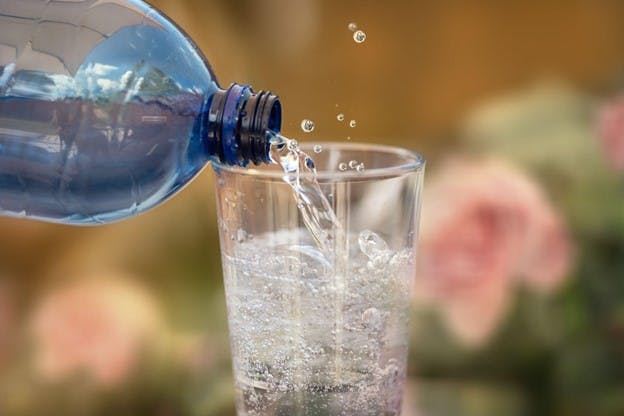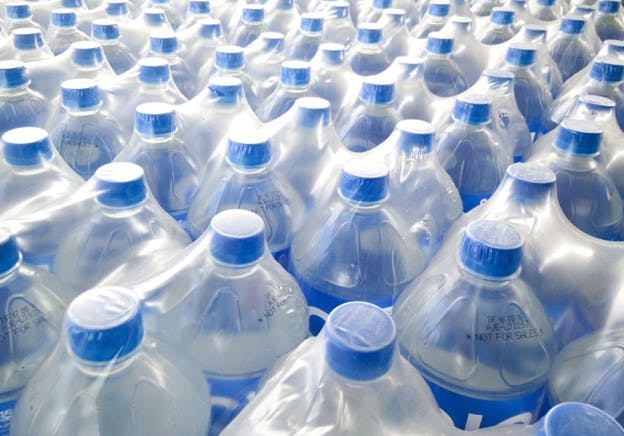December 2023
How Drinking Water Affects Your Teeth: Water and Dental Problems
While keeping up with brushing, flossing, and dentist visits is important, there’s a simple step you can take to keep your teeth healthy: stay hydrated. Drinking water helps reduce dental problems in several surprising ways.
In this article, we want to take a deep dive into water and dental problems to see why drinking water is beneficial to your teeth and gums, how powerful the benefits of water are, and what problems can arise if you’re not drinking enough.
How Does Water Affect Your Teeth?
Drinking plenty of water is one of the most important things you can do for your overall health. But it’s also one of the most important things to consider for your oral hygiene. Drinking water helps your mouth health in so many important ways.
Water Rinses Your Mouth Clean of Debris and Bacteria
You may not always have your toothbrush by your side but drinking a glass of water, or even just swishing it in your mouth regularly, washes away food particles before they build up and attract cavity-causing bacteria. Harmful bacteria can produce acids in your mouth which can attack your gums and tooth enamel. Over time this can cause gum disease and tooth decay.
Additionally, rinsing with water helps to balance the pH levels in your mouth, neutralizing the acidic environment that certain bacteria thrive in. By keeping your mouth clean and pH balanced, you're contributing to a healthier oral environment, which can have long-term benefits for your teeth and gums.
Water Helps to Prevent Dry Mouth
Saliva is made almost entirely of water. That's why one of the first signs of dehydration is a dry mouth due to lowered saliva production. This is where the relationship between water and dental problems becomes clear. Not having enough saliva isn't just an annoyance; it also creates significant dental problems. While saliva is mostly water, it’s packed with enzymes and minerals that protect your gums and re-mineralize your teeth with calcium, helping to repair small amounts of damage done to your teeth throughout the day.
Having a dry mouth allows bacteria to thrive which can result in weaker teeth and gums as well as bad breath. Dry mouth is also known as xerostomia.
Water Replaces Sugary and Highly Acidic Drinks
We all know that sugary candy can harm our teeth but it’s easy to forget about sugary drinks. Soda, fruit juice, and sports drinks coat your teeth with cavity-causing sugars while coffee and tea are highly acidic and can damage and stain your teeth. Replacing sugary and acidic drinks with fresh, filtered water can quench your thirst without increasing your dentist bills.
Decreasing your intake of sugary drinks can also improve your overall health. A high sugar intake can lead to diabetes which adds its own complications to your dental care. People with diabetes produce less saliva, which, as discussed, can leave your teeth unprotected. On top of that, people with diabetes often have elevated glucose levels in the saliva they produce. That means the saliva that should be protecting your teeth could be damaging them instead.
Fluoridated Water Protects Your Teeth from Cavities
Fluoride is well-known as a tooth protective substance, which is why it’s found in a variety of dental care products like toothpastes and mouthwashes. But for most of the people in the United States and Canada, another easy way to access fluoride is to just increase your water intake. That’s because adding fluoride to tap water is a common practice in North America.
According to the Centers for Disease Control and Prevention (CDC), water fluoridation is one of the most cost-effective ways to lower instances in tooth decay in both kids and adults. Fluoride is also why the American Dental Association (ADA) suggests drinking tap water instead of bottled water is often better for oral care. Most bottled water companies don't add fluoride to their products. This is why bottled water and dental problems may be linked.
Fluoride works by re-mineralizing your tooth enamel which can protect you from damage and even help repair early signs of tooth decay. When you drink fluoridated water, your saliva mixes with fluoride to continue to bathe your teeth throughout the day.
Types of Water That Can Cause Dental Problems
Hydration is important but not all water is created equal when it comes to your mouth health. Drinking the wrong type of water can cause dental issues. Here are three examples of water best avoided for optimal dental health.
Sparkling Water
Fizzy waters like seltzers get their sparkle from being pumped full of carbon dioxide. In your mouth, this turns into carbonic acid, which is very acidic and reduces the pH levels in your mouth. Over time, the acidic environment created by these fun drinks can damage your tooth enamel and cause decay.
Distilled Water
Water distillation is a powerful purification method that removes both harmful and beneficial contaminants from drinking water. Unfortunately, this means it removes beneficial minerals like calcium, which are good for your teeth and also help water maintain a pH level that’s friendly to oral health.
Enhanced Water
Don't be fooled by the marketing. Products like vitamin waters, fitness waters, or flavored waters may sound healthy, but they often contain added sugars and acids.
While these additives might offer some benefits like taste or added nutrients, they also have downsides when it comes to your oral health. The sugars and acids in these products can lead to tooth decay while added dyes can stain your teeth. Always check the ingredients list and nutritional information if you're looking for a teeth-friendly water product.
Is Drinking Lots of Water Good for Teeth?
Yes! Drinking fresh, filtered water frequently helps your teeth by diluting acids, clearing debris, encouraging saliva production, and keeping your body and immune system working at peak condition. If you drink tap water, your teeth could also benefit from increased fluoride exposure.
Drinking a glass of water after meals when you’re unable to brush your teeth can be especially beneficial to your overall dental health.
Does Swishing Water Help Teeth?
If you don’t have a toothbrush or mouthwash, swishing water can help you improve your dental health. It has many of the same benefits as drinking more water.
Swishing water can clear food debris from your teeth and gums. It also dilutes enamel-damaging acids, can help stop plaque from forming, and can expose your teeth to supplemental fluoride.
Why Is Bottled Water Bad for Your Teeth?
While all clean, fresh water is beneficial for oral health regardless of the source, there are particular concerns when it comes to bottled water and dental problems. The American Dental Association (ADA) often recommends tap water over bottled water due to fluoridation. In many parts of the United States and Canada, tap water is fluoridated to help prevent tooth decay. Most bottled water brands, however, don't include fluoride in their treatment process.
This lack of fluoride means that consistently choosing bottled water over tap water could make you miss out on the protective benefits fluoride offers for your teeth and gums. As a result, you could be inadvertently contributing to potential dental issues down the line.
Does Tap Water Cause Tooth Decay?
No! In fact, in the United States and Canada, tap water is considered the best water to drink for improving dental health due to water fluoridation. Tap water also includes naturally occurring minerals like calcium and phosphate which can further strengthen your teeth and stabilize the pH of the water.
Is Fluoridated Water Good for Babies?
While fluoride is touted for its good oral health benefits in adults and children, fluoride can cause cosmetic fluorosis in babies if overexposed to it. This is a mainly cosmetic condition where teeth are stained with brown and white streaks. While this isn’t usually a problem if breastfeeding, babies who are given baby formula on a regular basis will be more at risk. If you’d like to remove fluoride from your water supply, you’ll need a reverse osmosis filtration system to get the job done. Boiling water, water filter pitchers, and other activated carbon filters won’t do it.
Drinking Water Is an Important Part of Any Dental Routine
There are so many links between not getting enough water and dental problems, it's amazing it’s not talked about more often. Drinking more water (especially tap water) benefits your oral health by removing debris, helping you remineralize your teeth, and by neutralizing harmful acids. It’s also a better choice for your health than sugary drinks or coffee.
If you’re drinking more tap water to protect your teeth, you want the best-tasting water you can get. That’s where HomeWater can help. Our American-made UPSTREAM 4-Stage Whole Home Water Filter uses a unique blend of red flint, KDF55, and catalytic carbon to give you delicious water from every faucet in your home. It easily filters particulates, heavy metals, chlorine, VOCs, PFOS/PFAS, and more.
You can sip your way to a brighter smile with HomeWater!


